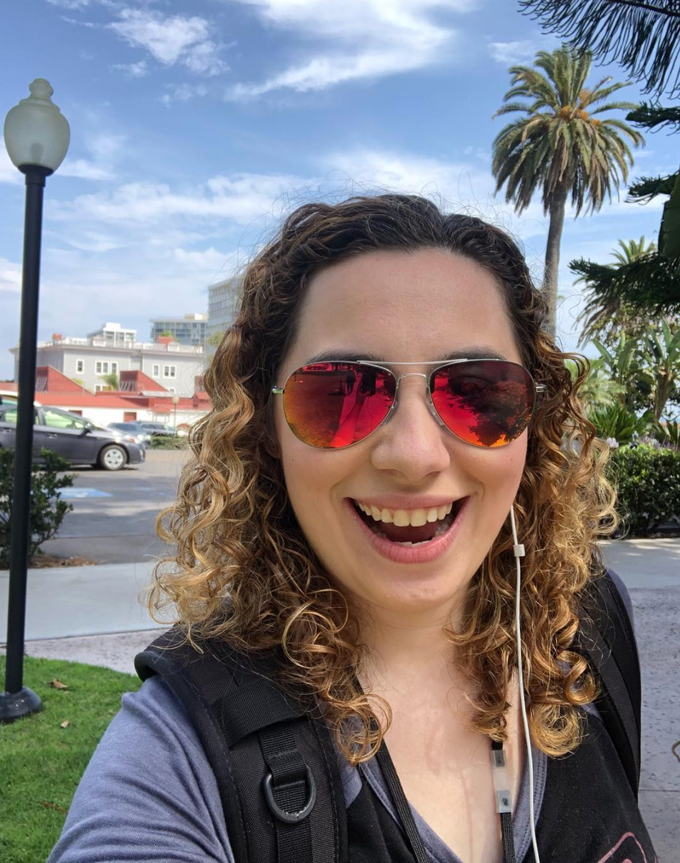Batman: The World is the Caped Crusader as seen through international eyes
Batman: The World Introduces new heroes and villains from around the globe
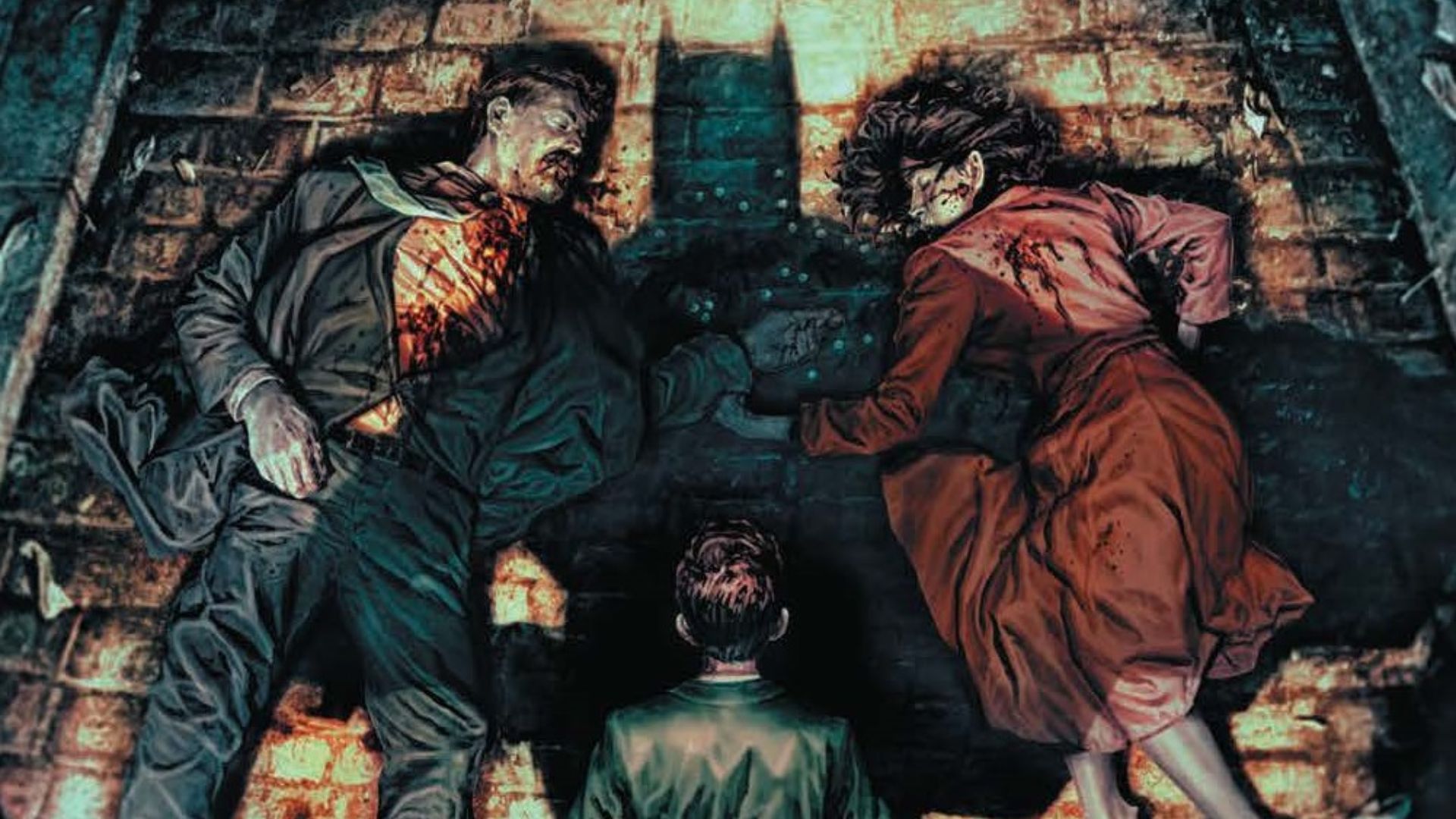
Batman: The World is DC's new 184-page anthology that's part of the publisher's Global Publishing Innovation Group, helmed by new senior editor Katie Kubert. The new book features the top creative teams from 14 nations as they explore what Batman means to them on a global level and begins with a big bang as the fan-favorite creative team of Brian Azzarello and Lee Bermejo returns to Batman for a story featuring the Caped Crusader reflecting on his time in Gotham City, and how his efforts to fight for justice could play outside the boundaries of his city.
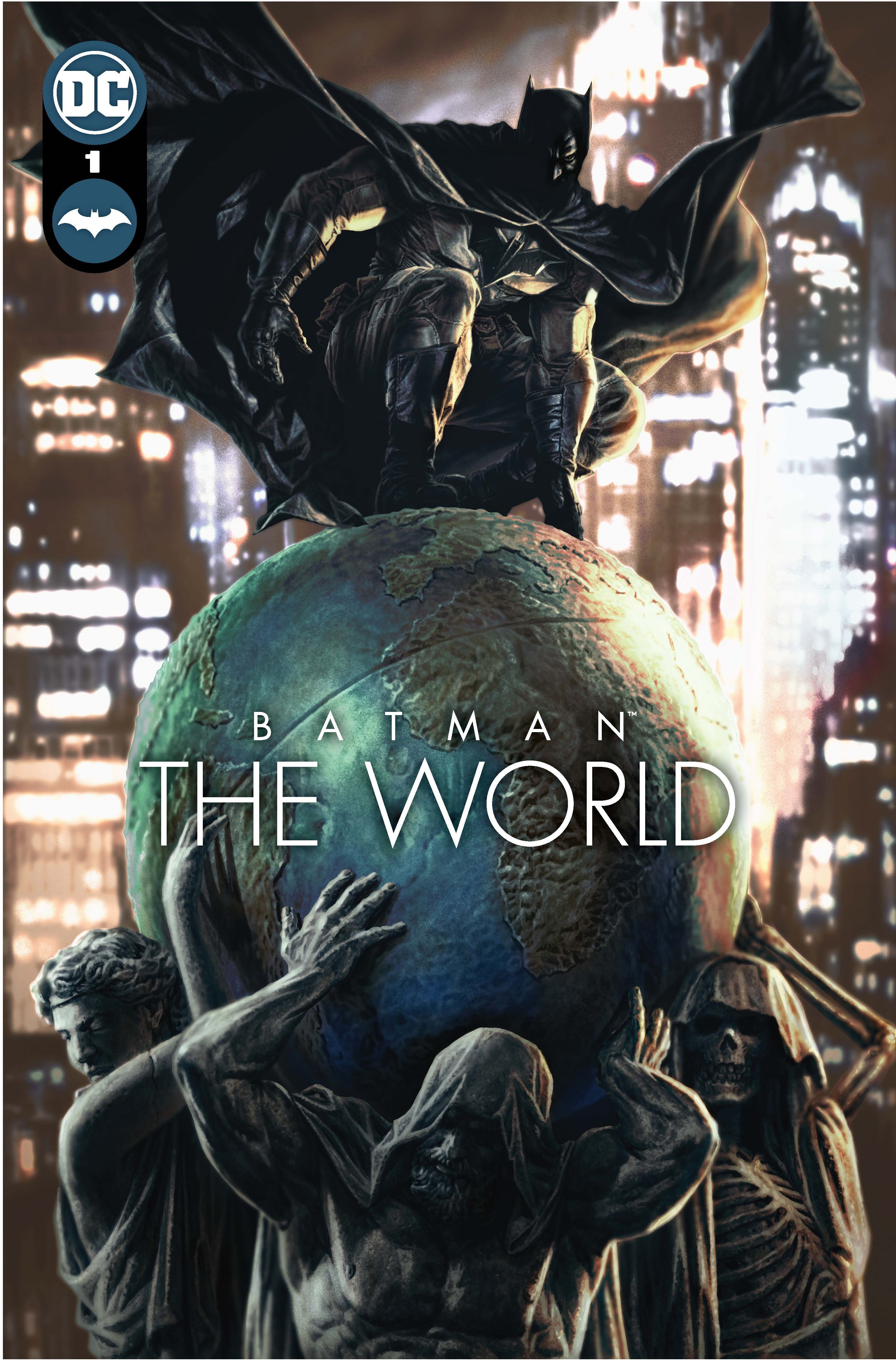
Ahead of Batman Day on September 18th, Batman: The World will hit comic books shops, bookstores, and digital platforms on Tuesday, September 14 in North America and all the other countries represented in the book. Newsarama and other members of the comic book press recently participated in a conversation with Kubert and Azzarello about what DC regards as a key release for this year and into the future.
The discussion covers the introduction of new villains and heroes, why Azzarello returned to Batman, and how this release will affect DC's future efforts within the international market.
And oh yeah, there's real pretty preview artwork to check out as well.
Katie, the first details about Batman: The World promised stories that were unique to each region and creative team's culture - can you elaborate on the different stories that has led to?
Katie Kubert: Absolutely. Batman: The World, as you mentioned, is one of our very first attempts to really create stories for a global market. What that means is tapping the very best from all of these different countries around the world to tell their version of a Batman story. It's more than just Batman in Gotham City. We wanted these stories to feel authentic to both the creators who make them as well as the people from these countries who will be reading them. For example, in our Spain story, Paco Roca wrote a story about Bruce Wayne trying to take a vacation in Spain.
Each of these stories shows what a Batman story would be like if it took place in, you know, South Korea or what Batman means to the people of Russia. It's about the authenticity of the story and Batman as a global hero. He's not just the hero for Gotham City. He's not just someone that people look up to or someone who sets the ideals for what a hero is in Gotham City or in the United States. It's really about Batman as a hero for everyone on the entire planet.
Get the best comic news, insights, opinions, analysis and more!
Brian, what made you want to return to Batman for this story in particular?
Brian Azzarello: I guess it was the global aspect of it because both Lee Bermejo and I were pretty much done with Batman at that point, but when we got the call about it, I said yes right away. A lot of the publishers that are represented in this book, I know personally from traveling. It was like, oh my God, it's going to be great. It would be really fun to do something like this.
Did you approach this story differently than other Batman stories knowing this would reach such a wide audience?
Azzarello: Totally! Lee and I were discussing what we were going to do, and I had a real broad idea about how the world is a macrocosm of Gotham City. There's crime and corruption everywhere. He doesn't just stay in Gotham City. In the Justice League, they go off, they go to space, whatever.
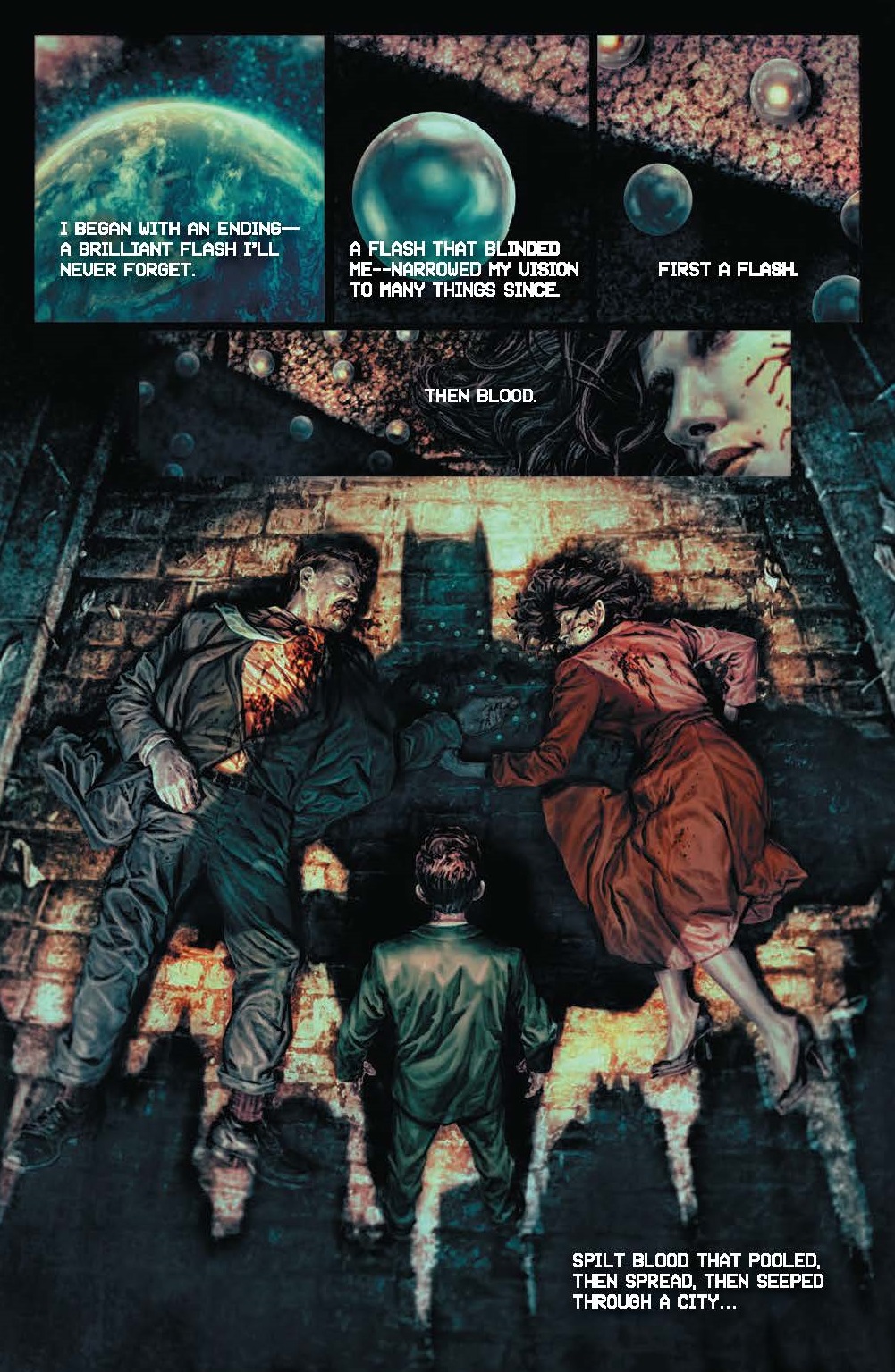
art from Batman: The World US story by Brian Azzarello and Lee Bermejo
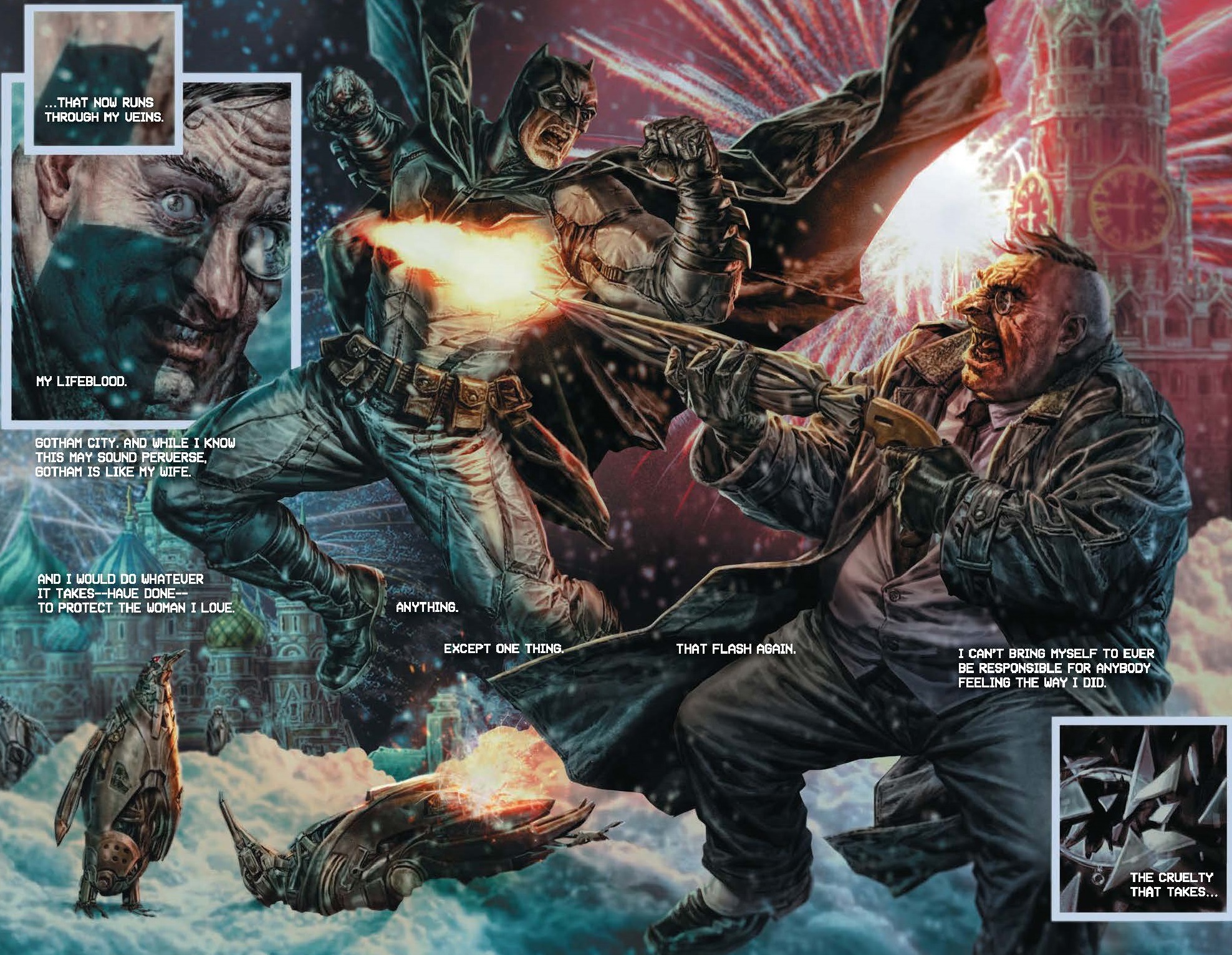
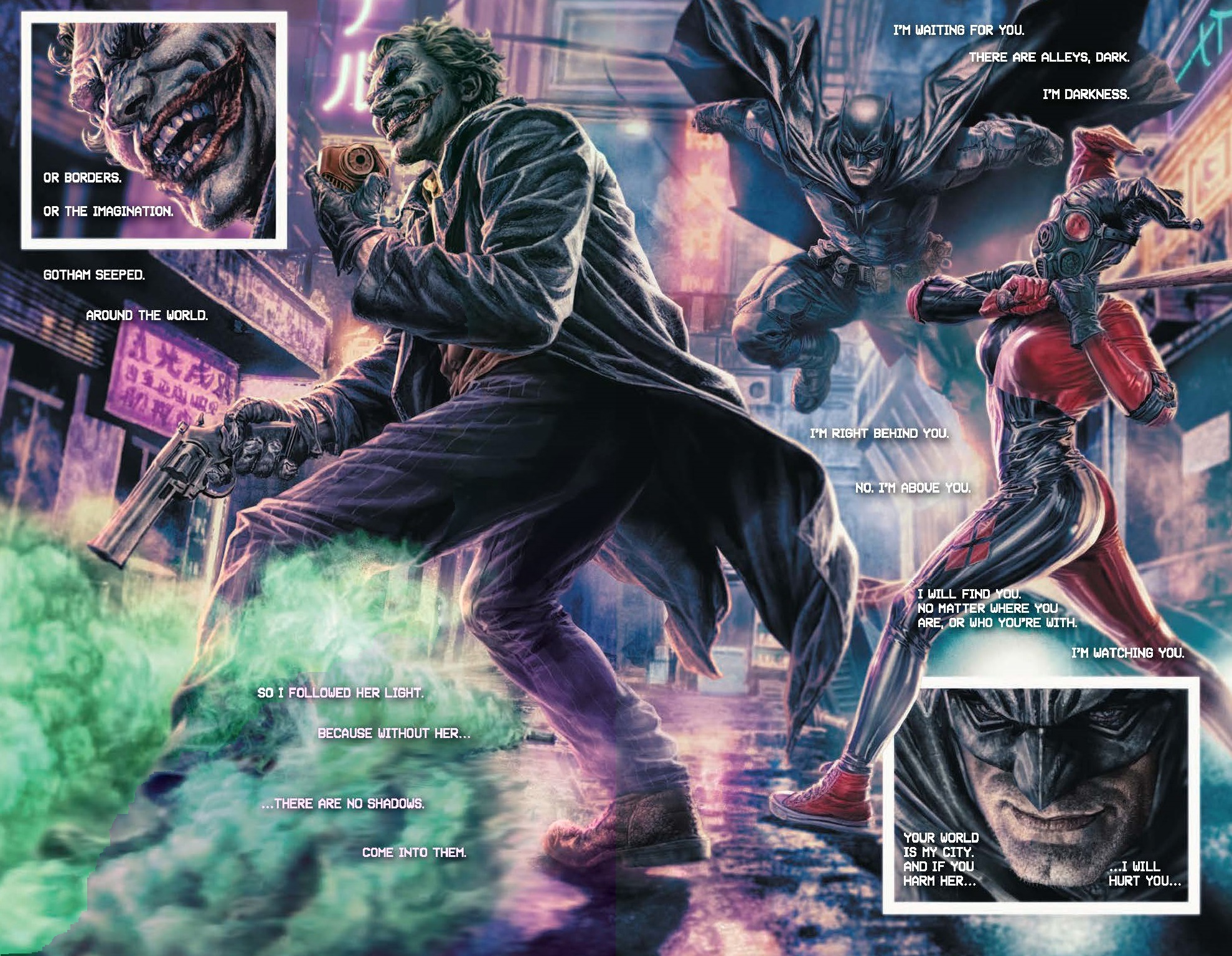
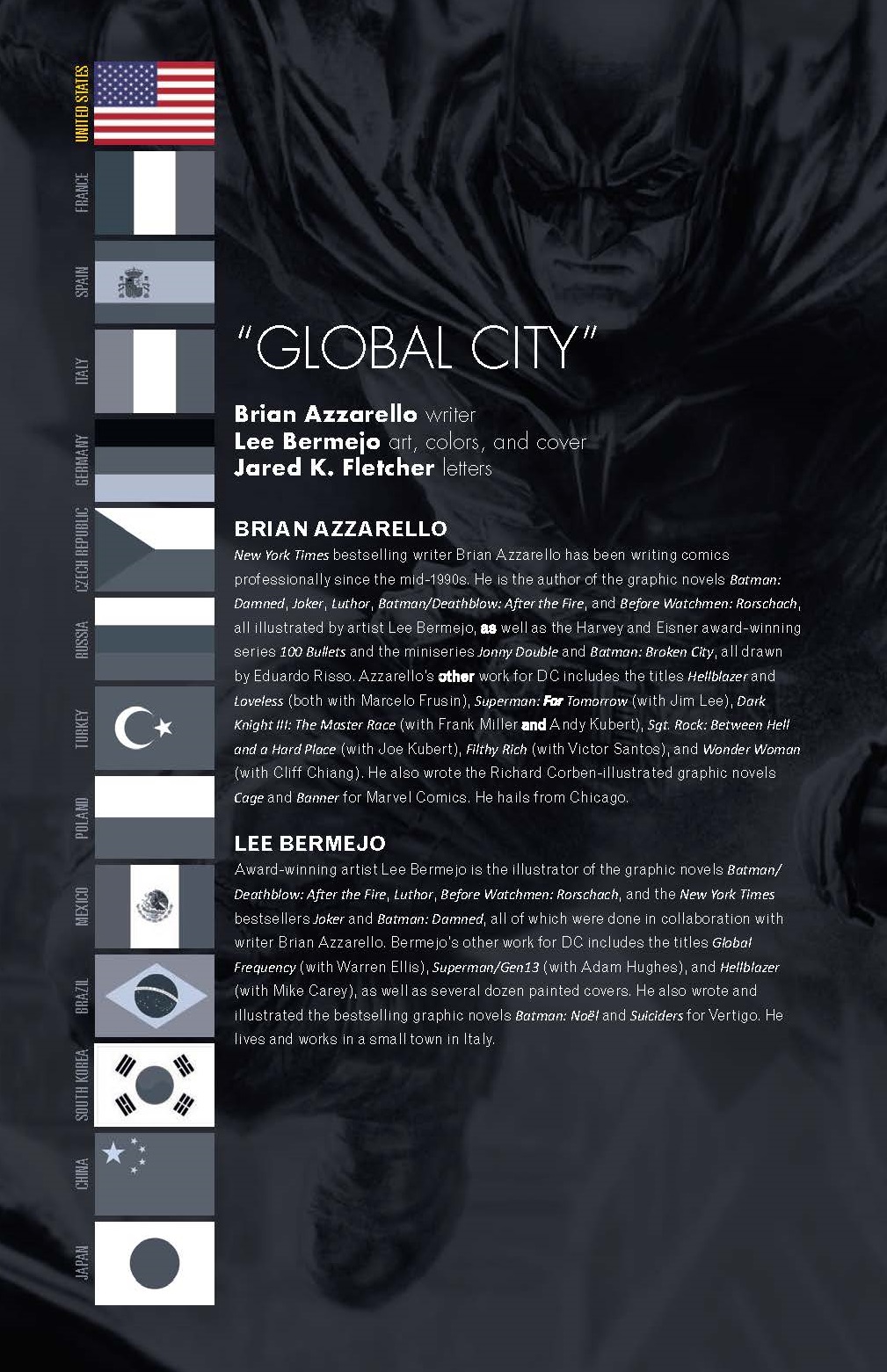
Rather than doing an American perspective on Batman because that's 99% of what Batman is, let's do more of what he thinks of the world, and then let's make it eye candy. I told Lee let's make it big - splashy pages, double-page spreads. Something really bold. When we were structuring the story, it was a monologue. There's one narrator. Lee says it reads like a poem. I'm like, I don't know about that, but it looks poetic.
Kubert: One of the things I really liked - this is one of the ways to show how amazing you and Lee are as storytellers. Most of the story is told in double-page spreads. That might not be something that you immediately register, but subconsciously that makes it feel even larger. Each page is blown out. It automatically, as a reader in your brain, it feels big. It feels global.
It just shows how masterful both Brian and Lee are in their storytelling. They want to lead you into this anthology with something that feels big and a really good way that they did that was to do every page as a double-page spread. I'm like, that's perfect. It's like one of those subtle storytelling things that you might not pick up on, but it's affecting how you go into the entire book.
Brian, you and Lee have worked together on so many projects, whether it's Batman: Damned or Joker. Why was he a no-brainer to be the artist with you on the global story?
Azzarello: Because we worked together on Batman so much, and we both travel a lot. If I get invited to a convention overseas, I say, yes. No questions asked. In fact, Katie, we were at a convention in Spain. I don't even think you were working for DC at the time, and you said we would work together.
Kubert: I don't know what you're talking about, but yes. I was just thinking about that. I had met you before, but one of the first times we actually hung out and got to know each other was in Spain.
Azzarello: We were in Spain and we worked on this book, Batman: The World. The connective tissue was very apparent to me. The last time I saw Lee, we were in Paris. Just two years ago, he's in Paris this weekend to celebrate.
Kubert: Lee was born in California, but he lives in Italy. He's lived in Italy for like decades. It's really nice to be able to have that international aspect with someone I've known for years.
Will any of these stories affect any current stories going on with Batman?
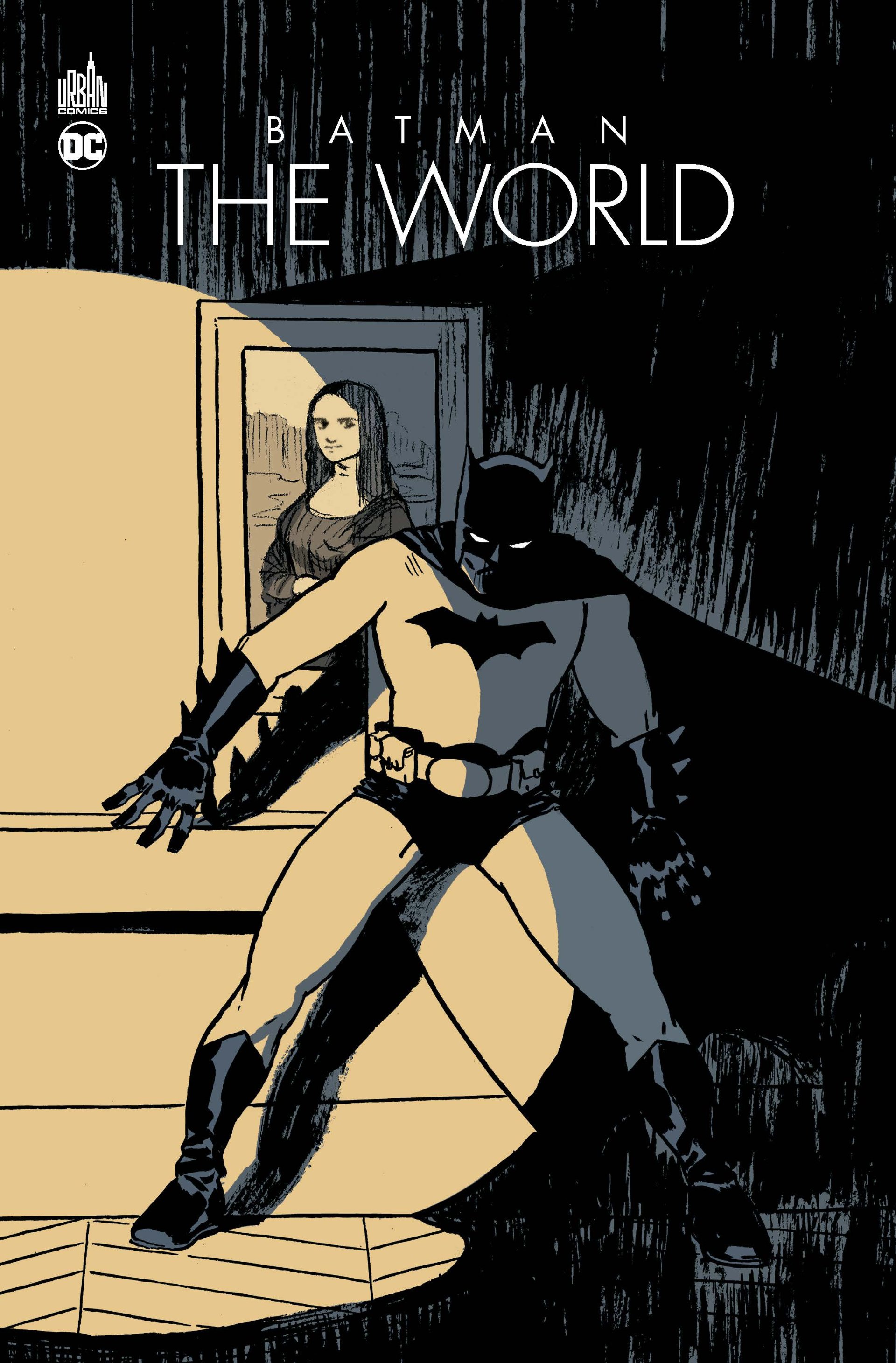
Kubert: With the Batman: The World anthology we are aiming to tell more evergreen stories. We want stories that if you've never read a Batman story regardless of what country you live in, regardless of where you're from - we wanted these to be easily accessible to all readers.
We do introduce some new heroes and new characters, like Panda Girl in the China story. There are a couple of other villains in the Turkey story that connect to the Court of Owls. So we like laying the groundwork that people can pick up, but I wouldn't say never. I'm saying I'm hoping that we can expand them, but, no plans right now. That's the whole reason you introduce new characters is like, oh, there's this cool character here, maybe I can pick them up and put them in another story.
A lot of that is going to be down to the DCU writers, editors, and creators if they find something that they'd like to incorporate into one of their stories. But it's by no means like I created this, I'm going to shove it into your story. That is not what we're doing. It's mainly just creating ensemble stories and new characters that hopefully people connect with, and hopefully, those characters find life elsewhere.
Were there any communication barriers working with so many different people around the world? What was the key in communicating?
Kubert: There were no communication barriers whatsoever, which is really a feat in itself. A big part of it was because of our manager for global publishing partnerships, Bartek Jelonek. He usually creates business partnerships with our publishers from around the world. He was the one who was kind of like our liaison between the creators and the publishers from the other territories and the editorial staff here in the US.
Bartek was really the grease in the wheels. If there was a question he would help us with whatever country or if a particular talent had a question. Then we did the regular thing that we do with all of our comics - when layouts come in, we compare them against the script, make sure that there were no language barriers with how something was drawn or how something was interpreted. It was a surprisingly smooth process, which I am very, very grateful for with such a large undertaking.
A book like this seems like a massive undertaking due to the number of creators, but also the global aspect. How long has this work been in production?
Kubert: This book is a very large undertaking, which we were happy to take on. The thing that I'm really proud of with the Global Publishing Innovations group is we never say no to anything pretty much. We try to do the new stuff.
Looking into new book markets, new formats, into things that have never been done before - that's really what global publishing innovation is trying to do. With this project, it's never really been done before for DC. We've never had a book release globally at the same time with this level of international talent.
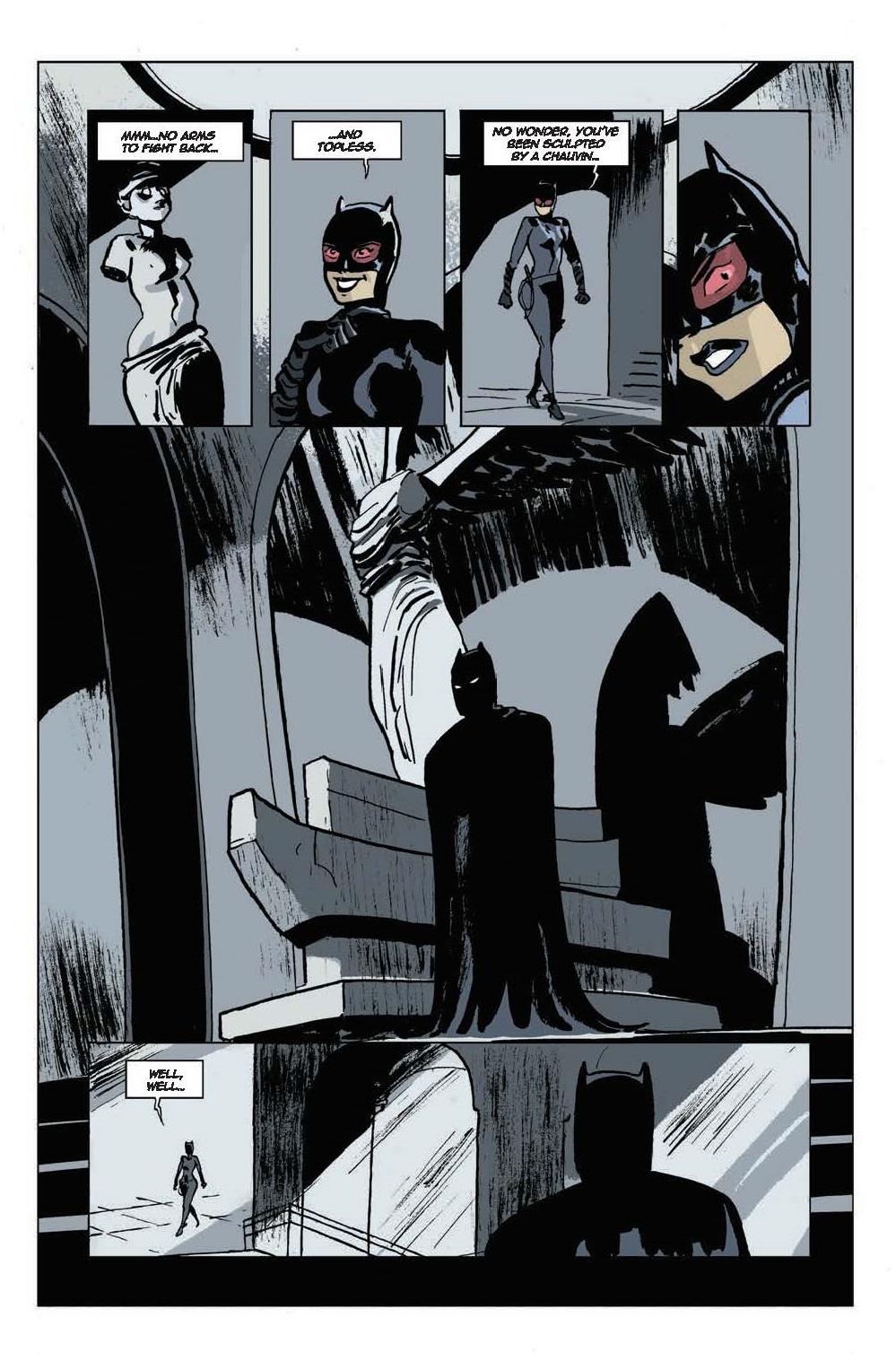
art from Batman: The World France story by Mathieu Gabella and Thierry Martin
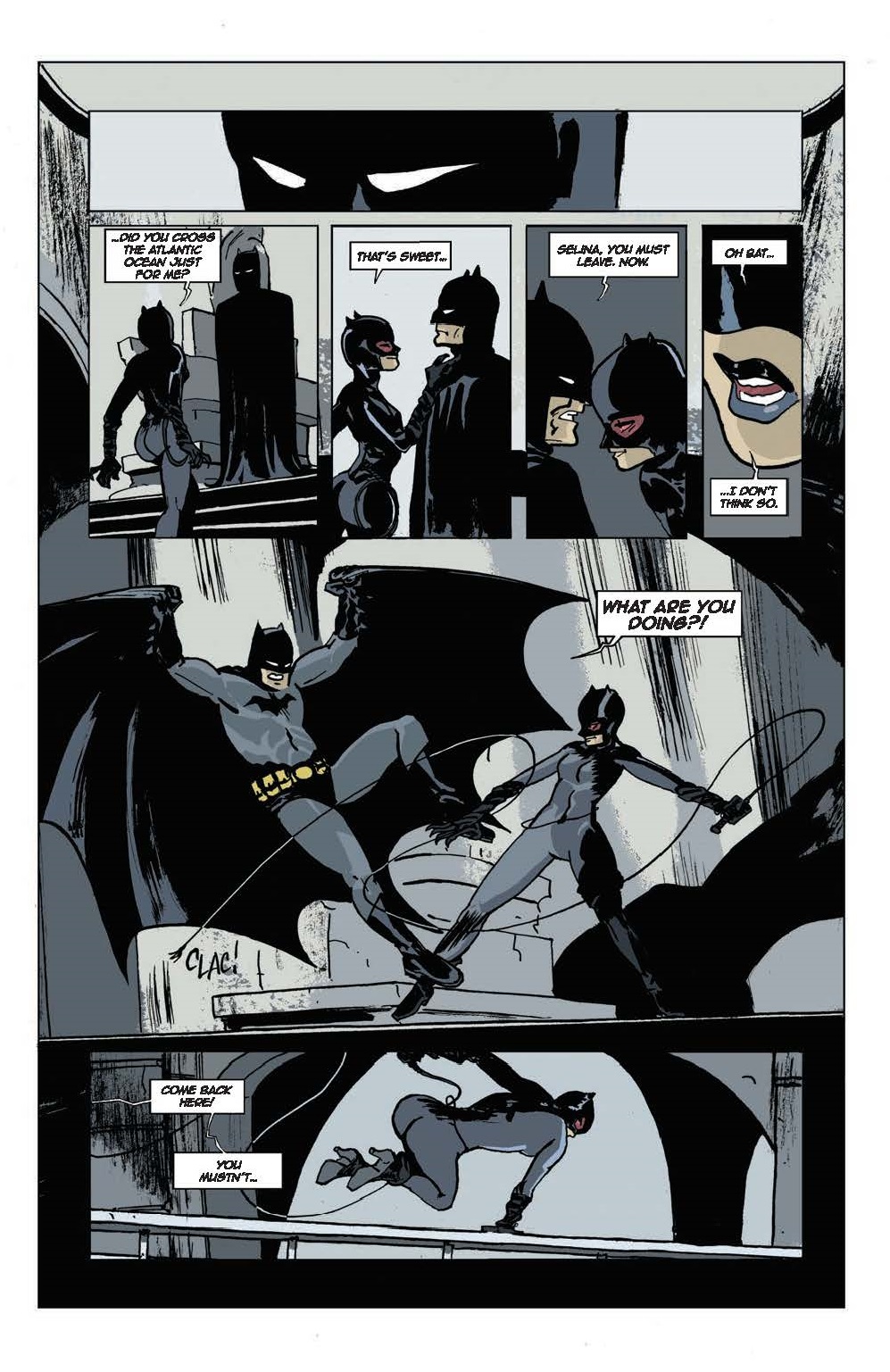
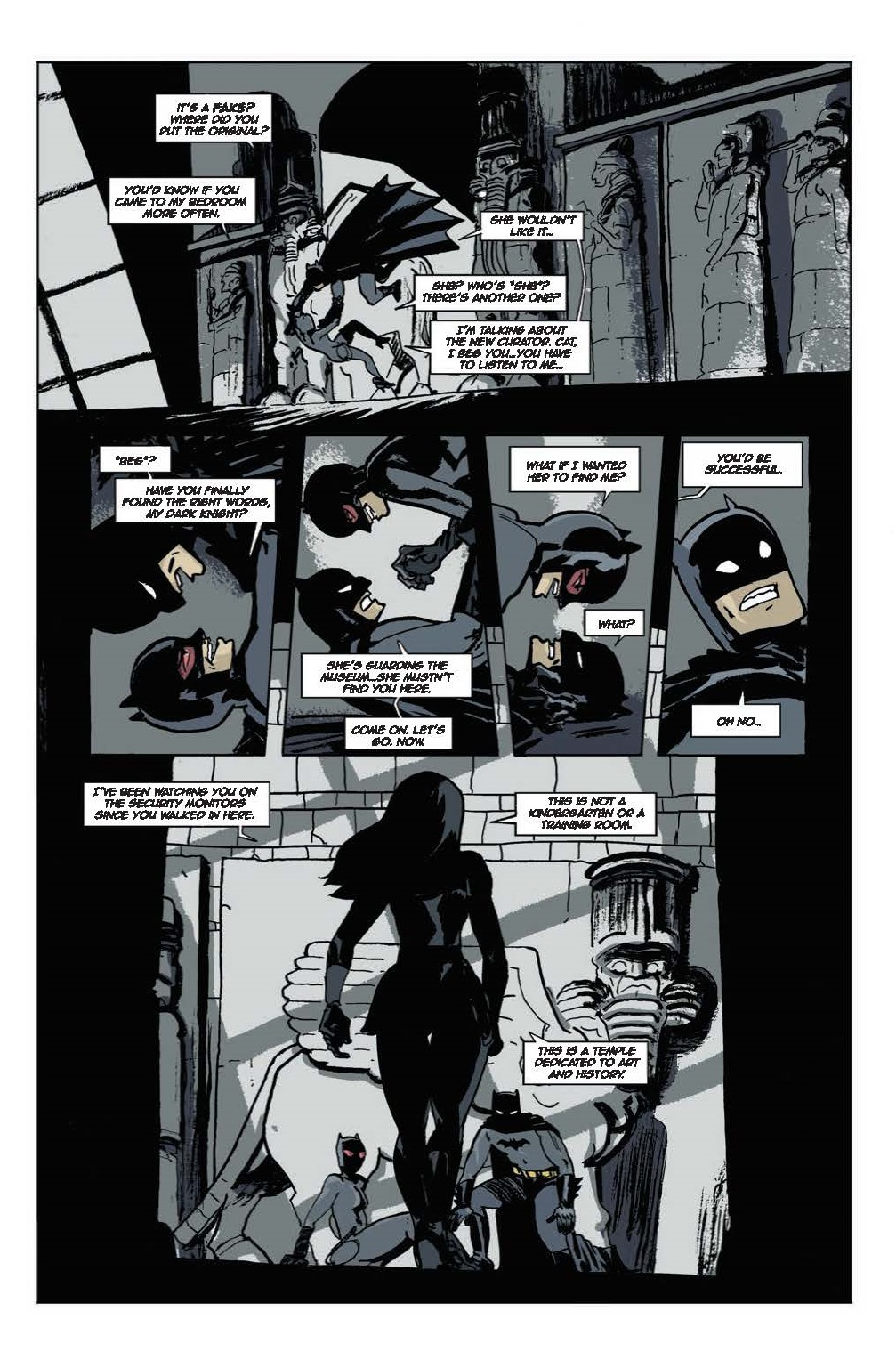
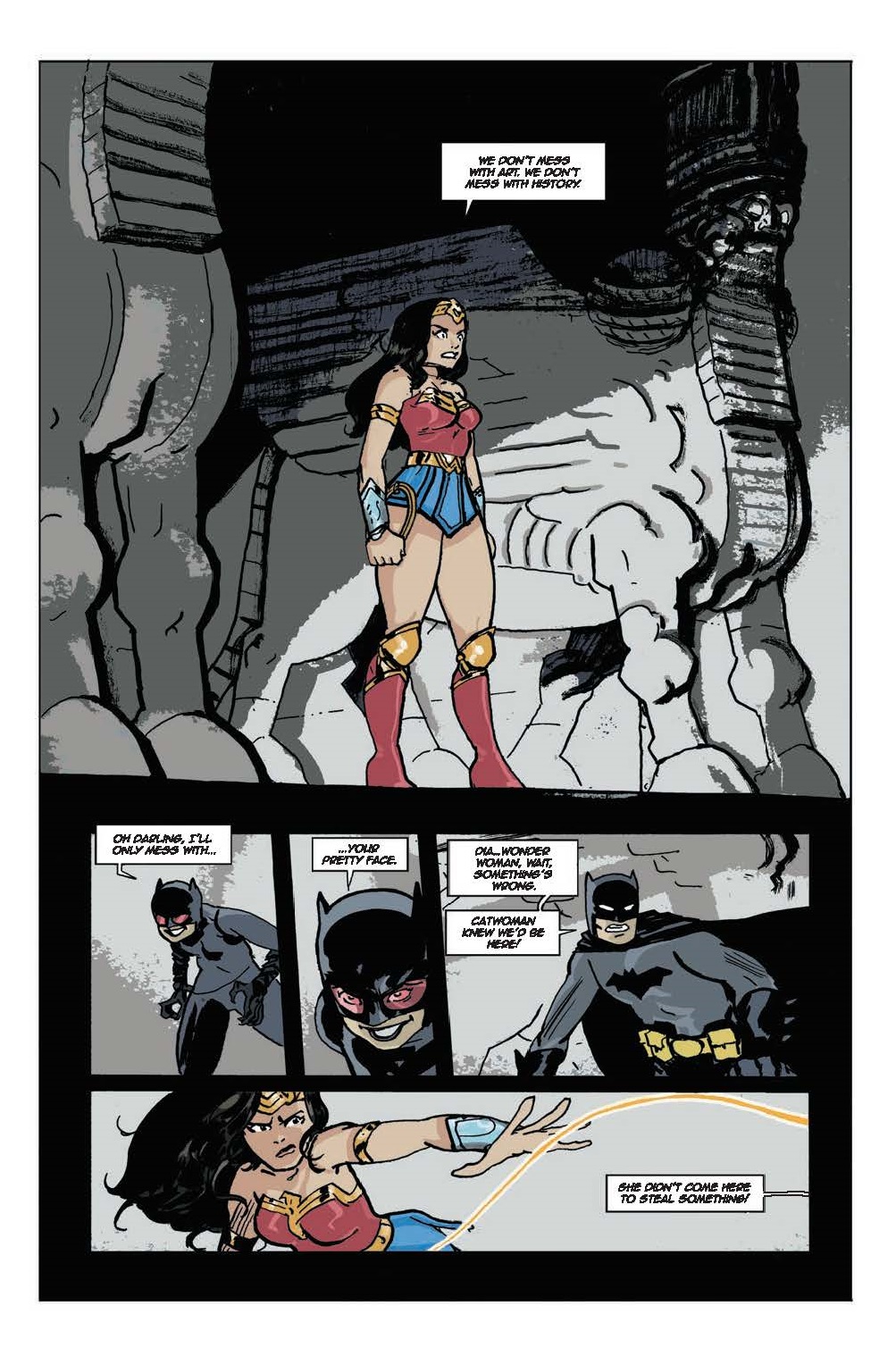
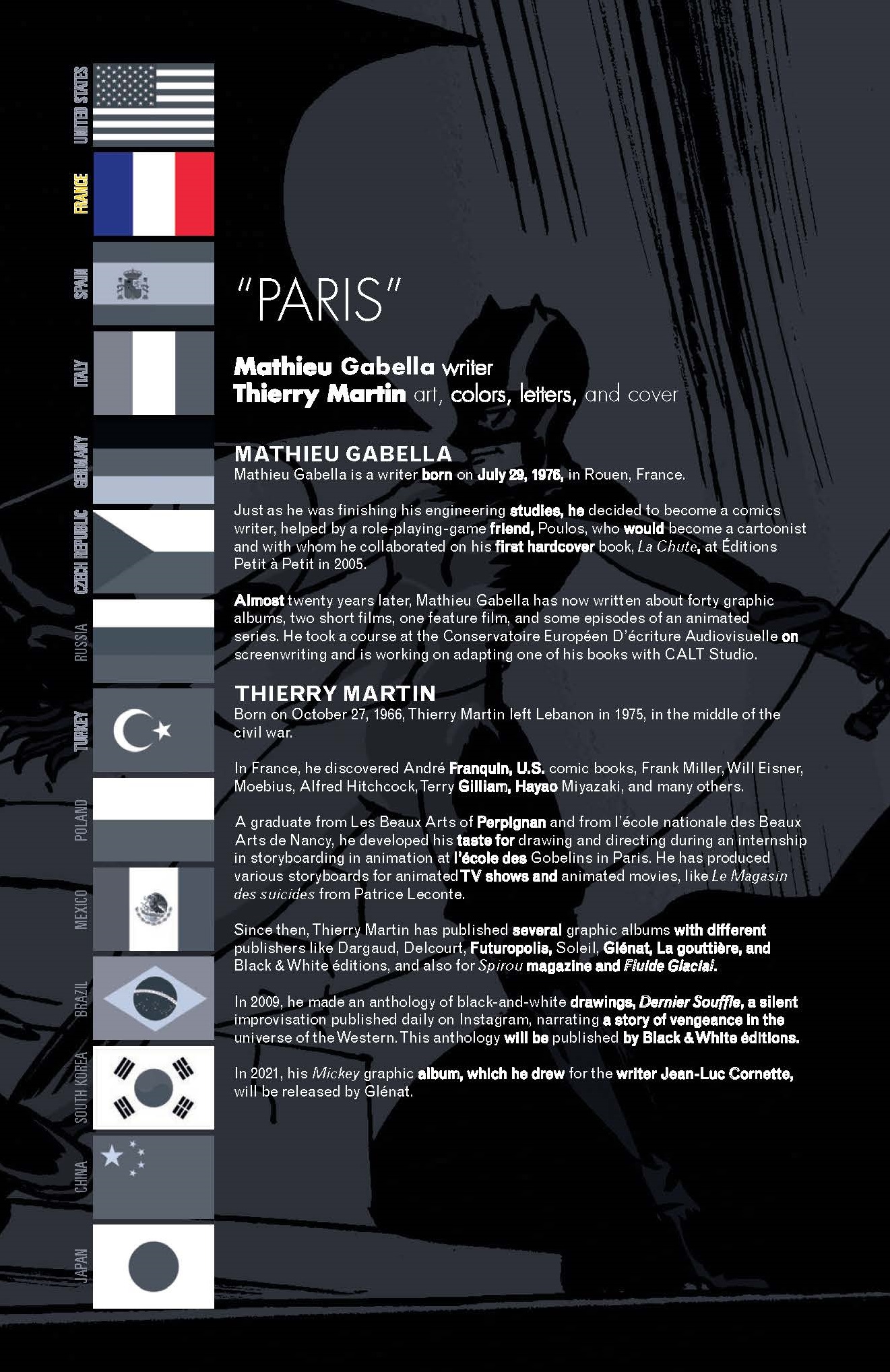
It was a challenge for us that we were really excited about. It has been in the works for a while. It's something that takes a while. The results were ultimately worth it. When you read it, or if you haven't read it yet, you'll see how smooth the process was. It just looks wonderful.
What were the challenges in curating this work?
Kubert: The challenges with this focus, as with any large anthology book, is just the sheer number of pages and making sure that everything is drawn the way it should be. Making sure Batman holds to his core immutable. Making sure that in all of these countries - a lot of times these creators are writing a Batman story or drawing a Batman story for the first time.
It's that level of allowing creators to be who they want to be and tell the story that they want to tell, but making sure that it's still a Batman story. Making sure Batman would act the way that he would act. Just making sure that he's the way he's supposed to be.
The biggest challenge, at the start of it, is making sure that we're telling the absolute best stories that we can. Then the art is representative of those stories and really elevating them in a way that we hope we do for all of our comics. That was a big challenge. The challenge, of course, is also juggling 14 different territories, 14 different storytelling teams - making sure everybody gets their things in on time, making sure the files are right, making sure the translations are correct. That's mainly just the normal juggling process for an editor to begin with.
Why do you think it's important for DC and the comic industry, in general, to continue to explore the international market?
Kubert: DC doesn't just create heroes or stories for American audiences. We have audiences on a global basis. We want to aim to make more comics, content, and stories that our international readers can identify with and can really feel like they see themselves on the page as well as our American audience.
I've said this a million times, but we want to be authentic. We want these stories to feel authentic. If we were to have American writers write a Chinese story, it would be great, but it doesn't have that connectivity that our Batman: The World team for the China story would have.
Each of these stories has stuff that connects to that particular country. It shows particular landscapes. Even with the Mexico story, we had certain urban legends and just things that American creators might not know, might not be aware of, or it wouldn't have that level of authenticity to it that we really want with these global stories. That's kind of what we're aiming to do.

Azzarello: You don't think we do our homework when we write about other countries? [laughs]
Kubert: That's not it at all. I'm just saying if you're having a Chinese story, if you have a story from Turkey, if you have a story from Mexico, I'd like to know what that story would be from the point of view of a Mexican or Turkish or Russian creator.
Azzarello: I think that's what really works in this anthology is that it's Batman, who is pretty much a universal character. You can graft different cultures onto him. It was really interesting to see what was going down. It was more about, not so much the locations for me, as it was the attitudes. The culture behind the character and his decisions. It was different.
Kubert: You set that up perfectly in your story. From a story point, Batman is needed around the world. You did a wonderful job.
Azzarello: Thank you. It was fun.
What have you learned about the international market through this project?
Azzarello: I don't know what I've learned through this project other than it's bigger than I thought. A lot of the people involved I've met - most of the European publishers that participated in this. I'm friends with them. When I go to Paris, I've been to the offices. I went to the brewery with our Czech publisher when I was in Prague a couple of years ago.
Kubert: This project has really helped me as an editor because I try to never be so arrogant to think that I know everything. Especially as an editor for global publishing innovation, it's constantly about learning - not only what international market readers want, but learning what stories the creators from these territories want to tell.
I could not have guessed that the story from Russia would have been about how much Batman means to this character in the story growing up. I couldn't have predicted that that was the story that they wanted to tell. And with the Czech Republic, that story touched base on a lot of stuff from the Iron Curtain and the problems with socialism and things like that.
It's almost a history lesson for me because then I get to learn like an urban legend of this ghost in Mexico. We want to put that in the story. I had no idea about that. Going back to the Czech Republic, learning about the actual Bolshevik sorcerers and learning that they were actually trying to develop the weapons that you see in the story. We fictionalize that and show what would have happened if they really succeeded.
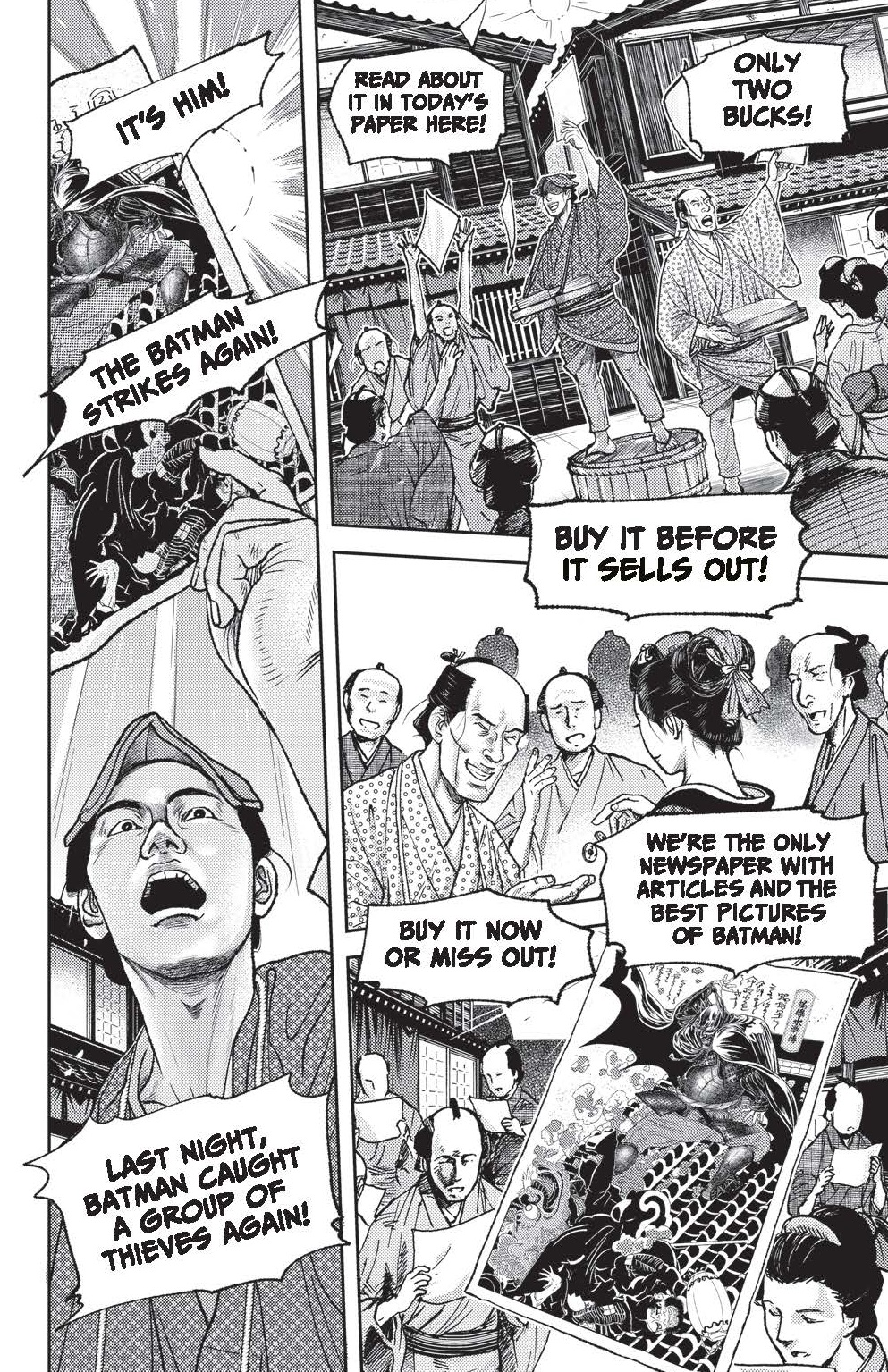
art from Batman: The World Japan by Okadaya Yuichi
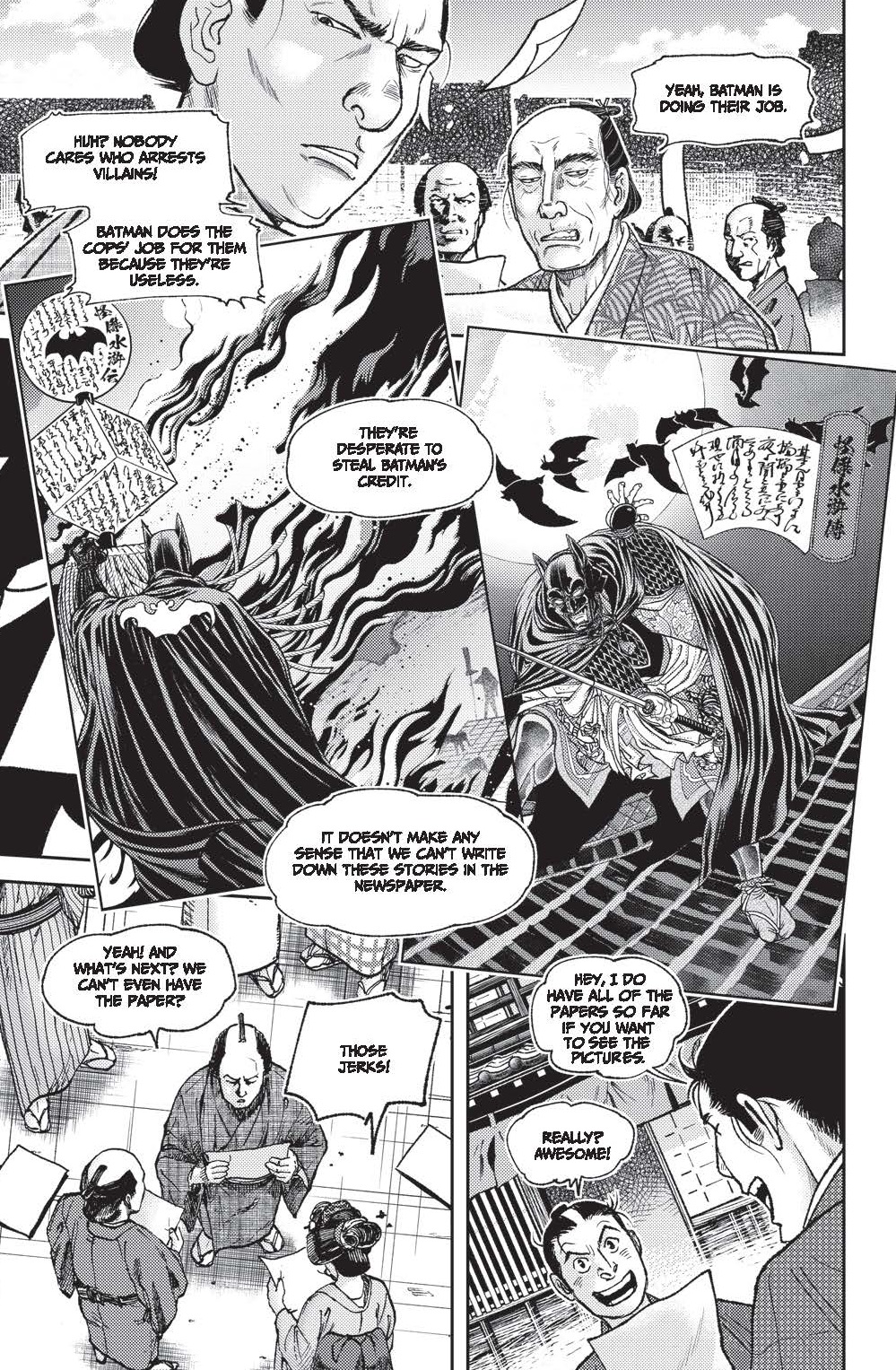
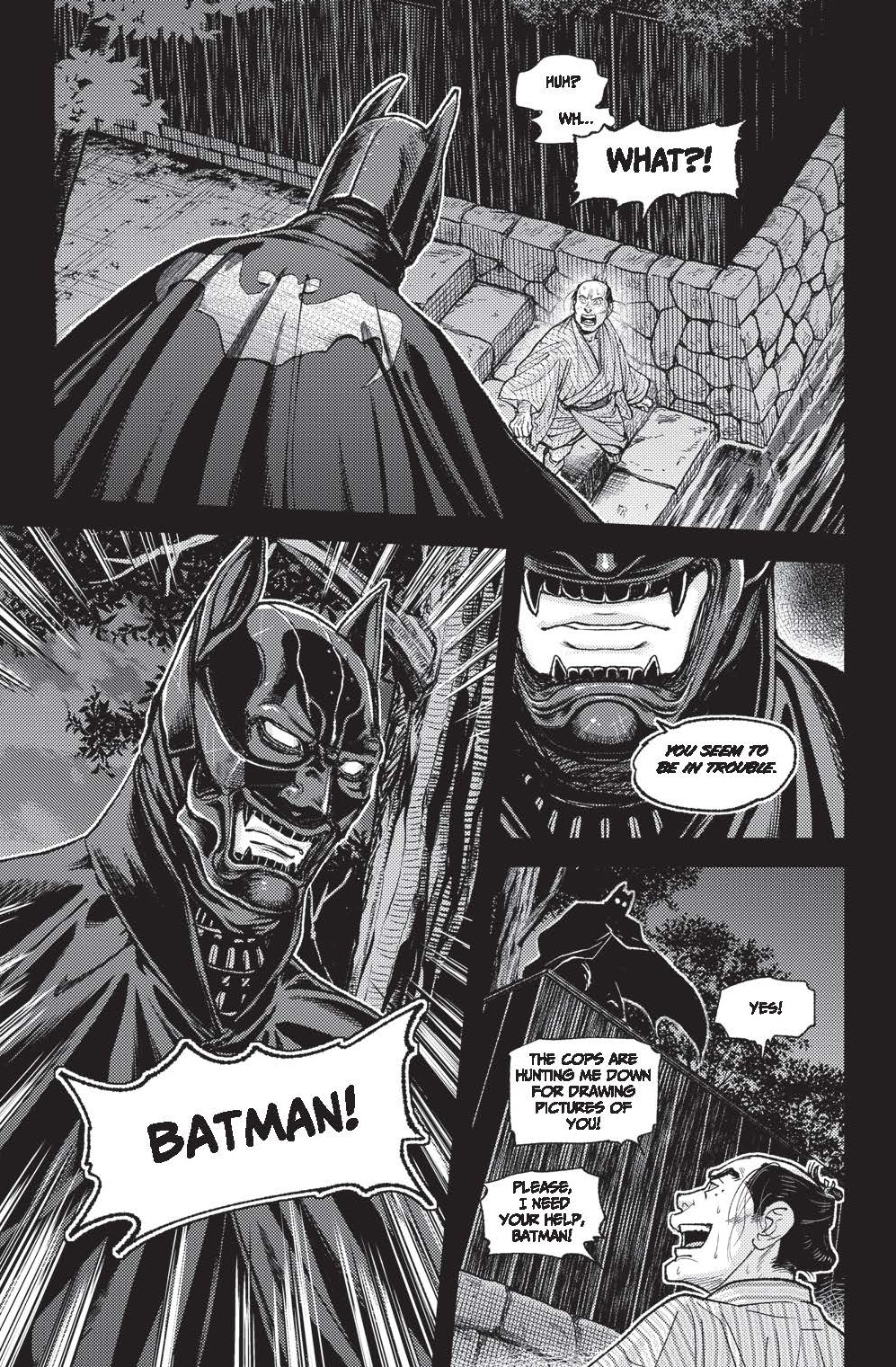
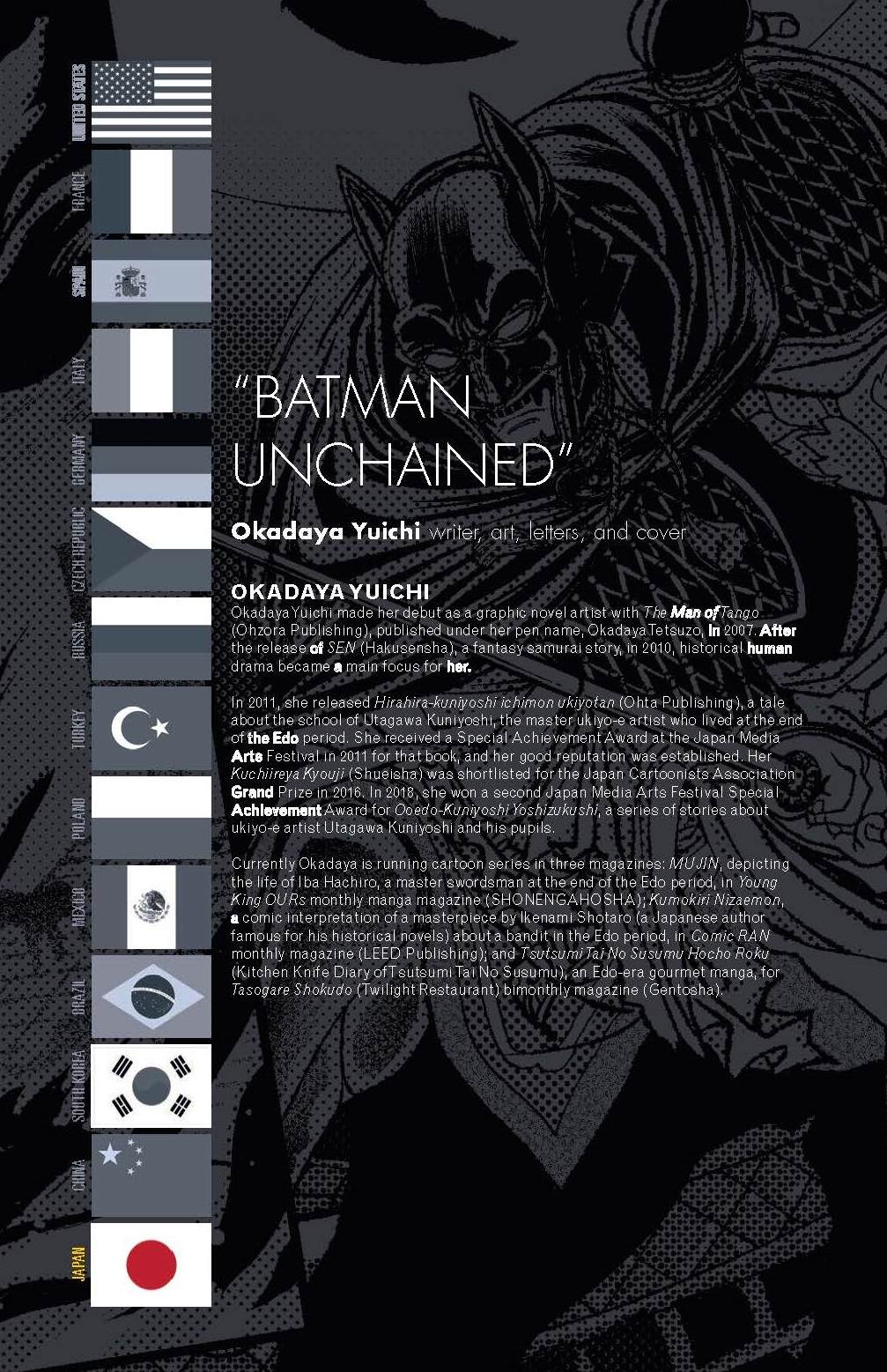
A lot of this has been learning about each territory, and about what stories matter to them. I'd like to be able to integrate that now with any of the future projects that we do as a learning experience for me, but also what matters to each territory from a creative perspective.
Following Batman: The World, will we be seeing DC work even further in the international market?
Kubert: Yes, absolutely. Global Publishing Innovation is focused on innovating publishing on a global scale. This is definitely not the last you will be seeing from our team or with the high achieving level because we want to do more like this, but we want to level up. We want to see what else we can do, and make things even better. This is definitely us just kind of starting with that.
You had Batman Fortnight Zero Point which was also a global day and date release, but we absolutely want to expand working with international talent, seeing how we can release things, day and day globally. This is definitely not the last of these projects. We're open to expanding to this in the future, and when I say future I mean 2022.
Did you have to bring outside experts in to get all the cultural elements correct?
Kubert: The experts were the storytellers for each of these stories. When you create a story, as an editor, you put a level of trust in whoever you hire and whoever you're working with. Far be it for me to say like, no, that's not how it is in Russia. Like, I don't know. The people we were hiring were the experts.
Why do you think Batman is universal?
Azzarello: And he's got a cool costume. He's got the coolest costume of anybody.
Kubert: He doesn't have powers. Batman is the coolest.
Azzarello: Batman has some problems.
Kubert: They all have problems.
Azzarello: Bruce has problems. Batman is pretty cool.
Will you do a volume 2?
Kubert: I would love to. We're trying to look at that now, but I don't want to spoil anything, but yes I would love to continue to do this. It was a really great initiative for us and I would love to figure out ways to do even more and to plus it up in additional ways.
If you were to do a second volume, are there any countries on your wish list that didn't make it into the first volume you'd like to add?
Kubert: That's a tough one. I'm so pleased with the countries that we were able to get, but there are so many others that would have stories to tell. Gosh, I'm trying to think.
Azzarello: There was somebody on some social media that was complaining that there was no Canadian story.
Kubert: Canadian is good. I'd like to see an Indian story, honestly. A story from Thailand. It's funny when I answered that question, I keep thinking, I'm like, where do I want to go? And what food do I want to eat?
Azzarello: Argentina too. That's a country with a really rich comic tradition.
Kubert: The Argentinian artists are fantastic. That would be cool to see. I don't think we had any stories from England in here. That would be amazing or Ireland. We have so many creators from those territories that are just stellar and highlighting those stories would be wonderful too.
An international contingent of creators will lend their voices to Batman. Newsarama looks at the creators that defined DC's Caped Crusader over his history.
Kat has been working in the comic book industry as a critic for over a decade with her YouTube channel, Comic Uno. She’s been writing for Newsarama since 2017 and also currently writes for DC Comics’ DC Universe - bylines include IGN, Fandom, and TV Guide. She writes her own comics with her titles Like Father, Like Daughter and They Call Her…The Dancer. Calamia has a Bachelor’s degree in Communications and minor in Journalism through Marymount Manhattan and a MFA in Writing and Producing Television from LIU Brooklyn.
